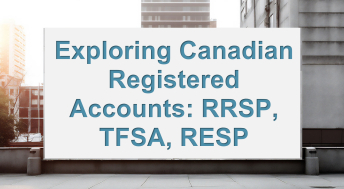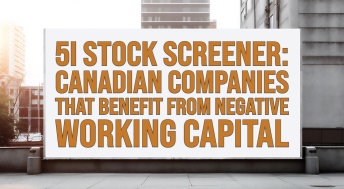"The seller of options wins 95% of the time"
When I first started in the investment world, I quickly discovered the joy — and pain — of trading options. At first, like most traders, I thought buying calls and puts was the key to quick riches. But after multiple losses as a 21-year-old, it became very clear to me that the riches were to be obtained from selling options, not buying them. Now, years later, I continue to sell options — mostly covered calls — to supplement my income.
Selling a covered call gives you a premium (the option premium) and gives another investor the “option” to buy your stock at a fixed defined price, at a fixed expiry date in the future. For example, an option seller might get $2 to sell a $50 September call option on XYZ when XYZ shares are trading at $45. If XYZ goes above $50 before the expiry date (the third Saturday of each month), then the seller is obligated to sell their stock at $50. If XYZ fails to hit $50, he keeps his stock. Either way, the option seller keeps the $2 premium (options trade in 100 share contracts). So the potential upside is $7/share ($50 minus $45, plus $2 premium). The minimum return is $2/share. If XYZ declines, the maximum potential loss is whatever the stock goes to, minus the $2 call option premium received. Why do I think covered calls are an interesting strategy these days? Well, here are five reasons:
The Seller of Options Wins 95 Per Cent of The Time
Like being the owner of a casino in Vegas, when you sell options, the odds are in your favour. But in the options market you have even better odds than a casino. Practically every option buyer loses money. Why then, does the options market continue to exist? Well, there is of course a legitimate hedging need for options. But the main reason is … greed. When an options buyer is right, the leverage is miraculous. One can buy a short-term $0.50 option, at times, and see it go to $10, once in a while. Quick fortunes can be made if the market moves quickly and sharply. But, that is not the norm. The majority of options buyers — despite dreams of riches in their heads — typically just see their investment expire worthless. The option seller just keeps their money, thank you very much.
Time is Guaranteed
The market is a risky place, as investors have clearly been reminded in 2022. Nothing is guaranteed. Can the biggest company in Canada decline 75 per cent in six months? It just did. But one thing that is guaranteed is time. Sure as sunrise, each day clicks by, and each day every option is worth less in time value. As options tick by to expiration, the option seller is guaranteed that less time is available before expiry. Thus, time is the only real guarantee in the investment world. When you sell options, you are not necessarily trading stocks — you are selling time.
Premiums are Treated as Capital Gains
Unless you are an extremely active trader and your main source of income is options trading, and you are a professional, the CRA treats options income as capital gains. Thus, for most investors, this means the lowest tax rate on income possible. Thus, one can supplement their income and keep more of their money. If a stock does move higher and is about to be called away, an investor can always buy back the option to cancel it, and the loss on that trade can be deducted from capital gains.
Bear Markets are ‘Slightly’ Less Painful
The extra income from call options can reduce the pain a bit in a bear market. Sure, your stock might have declined from $75 to $50 in the past six months, but you might have picked up $10 or so in options premiums during that time. You have still lost money (on paper) of course, but the income still makes the bear market a little more BEARable (sorry, couldn’t resist). In addition, when markets are volatile, options premiums also increase in value, so in a roller-coaster market your option premium income can increase nicely. Still not great, but again, the higher income makes the weaker market slightly less painful.
Investors Overestimate Short-Term Stock Market Volatility
Options premiums can range wildly, depending on the underlying company, its volatility, dividends, balance sheet risk, sector and other factors. I prefer to only utilize one-month options for one reason: investors tend to overestimate stock volatility. In a 30 to 35-day period, the average stock simply does not move too much. But there are always investors who seem willing to bet on individual stock moves. Some stocks can provide call option premiums of five per cent to seven per cent, per month. Sure, sometimes markets will move a lot, and option sellers will have to sell a stock once in a while. But if an investor sells covered calls on 10 positions or so, it is not likely that many will move enough to get called away. And if they do, so what? If the option strike price is higher than the current price, investors still make lots of money — just less than they would if they had done nothing. But making money in the current market is tough. Are we really going to complain about making less money in a bear market?
Take Care,







Comments
Login to post a comment.